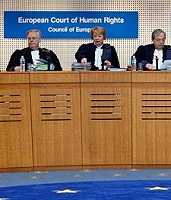Guest Writer
Guest Writer's Latest Posts

Roll it over and face the music
The rollover policy was implemented for one reason only: to prevent a large number of non-Caymanian residents from becoming Caymanian and to comply with international law/convention, that after a certain number of years (I believe 10) it was the proper thing to enable people to become citizens/have certain rights in a country.
The likelihood of a large number of persons becoming citizens at the time was seen as particularly overwhelming in Cayman and the primary focus was on one nationality which observers felt was becoming too dominant in the society.
Once the rollover started to ‘roll’ however, politicians and observers alike added another ‘fake’ objective in retrospect: that somehow the rollover was intended to help Caymanians progress in the labour market. This was never the case (despite the sound bites) and it has in fact never ever played out that way, as the evidence has shown.
So, let's start at the beginning: the suspension of the rollover now has absolutely nothing to do with whether Caymanians will progress in the workplace or secure jobs because work permit holders have for the most part simply been replaced by other work permit holders. In fact, all the rollover has acheived is to increase the recruitment and training cost of businesses, created some disruption in families and encouraged a larger percentage of people within our population without a vested interest in, or familiarity with, the islands.
The suspension of the rollover now will, however, bring us back to the same questions we were asking when it was created. And if we are still concerned about that particular group having a large Caymanian population (or indeed any new group), and if we believe the international law issue remains a human rights concern, then we need to find other ways to either re-introduce the ‘social engineering’ some of us still wish to have and comply with such international conventions.
Our reality as an island is that we will never be able to avoid the cosmopolitan and very diverse demographics that we have had and this will only increase in the future, simply because we cannot have enough babies to grow our “indigenous” population to meet the demand of firms seeking new employees.
Perhaps we should give up on the social engineering and accept the diversity, which is where we are already, and find creative ways to ensure that issues such as crime, education of Caymanians, progression in the workplace are addressed. These issues can be addressed through investing in education and enforcement of immigration rules, etc, and relying less on these protectionist mechanisms, which are only designed to make the few feel good about their sovereignty/rights but ultimately do nothing to better the progress of our own people.
The entitlement culture is not something dreamed up by “evil expats” looking to harm our locals: it is a real phenomenon that needs to be addressed with our young people in particular so that they can become competitive by international standards. The rollover had become one of the recent factors which has helped to sustain a false sense of security among our people, and assuming we can address the international compliance issue, it is probably a good thing that the rollover be remove completely so that we can face our issues properly. Time to face the music and move on.

Pillar Design
Diversifying the economy of the Cayman Islands is a good idea. Encouraging high tech companies to locate in Cayman is a good idea. The draft “special economic zone” legislation recently released is very badly flawed. So how did two good ideas come to be associated with such daft implementation?
The draft legislation proposed last week shows all the signs of being another episode in the MOU-of-the-week “Fire, Ready, Aim” soap opera … or worse. There are so many things wrong with it that it would not be possible to identify all of them in 8000 words let alone the 500 – 800 words that CNS recommends for a single Viewpoint. This Viewpoint will point out only two of the many defects, one specific and one general.
The specific problem is that while the hype surrounding the “special economic zones” suggests that they will bring in new high tech companies, the draft legislation does not even mention "high tech" nor does it limit in any meaningful way the types of businesses allowed to escape normal regulation within the “special economic zone”. The principal limitations are set out in s.18 of the Bill, but these are so vague that much of our current financial services sector would be permitted to relocate. By way of example, our principal law firms, fund managers, etc. exist mainly to service offshore clients and most of what they do in Cayman is incidental to the services they provide to offshore clients. They would therefore be permitted to relocate some or all of their activities to the proposed “special economic zones”.
Perhaps it is the government’s intention to ensure that one of the existing pillars of our economy is placed outside the rules that apply to the rest of the economy. Perhaps, as it appears, this draft legislation was designed by the ones intending to benefit from it, with nobody in government understanding the effects. Perhaps it is the case that those who proposed the legislation in the LA don’t really care what the legislation does to our country. Perhaps there is another explanation.
Whatever the explanation, a simple solution to this specific problem is to add provisions that clearly delineate which businesses are not intended to be in the new “zones”. By way of example, the legislation could specify that no person engaged in a profession regulated in the Cayman Islands (including law firms and accounting firms), and no business regulated and/or licensed by the Cayman Islands Monetary Authority, and no person doing business with any of our official registers such as the Companies Registry or the Trade Mark Registry, is permitted to operate in the “enterprise zone”. That addition would not hinder real “high tech” companies, but would limit the damage to an existing economic pillar.
The general problem is that the Premier and his Cabinet propose that they should be the ones who decide on whether a particular entity is able to set up a zone in Cayman. That is a very, very bad idea.
Consider that perhaps there are very good reasons why politicians are no longer permitted to decide which applicants get banking licenses. The reasoning in relation to banking, which is applied across the planet, seems to be that most politicians have no relevant experience or formal education on which to base appropriate licensing decisions and, just perhaps, there is a need to minimise political corruption producing decisions that are bad for ordinary people. Whether either of those criteria is relevant in Cayman is left to the reader.
The simple solution to this general problem is to set out proper policy guidelines in the legislation and to leave decisions on the number and location of “special economic zones” to the “Special Economic Zone Authority” that the legislation already proposes. This is already done with other statutory authorities. Provided that the proposed Authority is staffed with appropriate expertise and is not tampered with politically (that is a big “if” admittedly), it would be able to make decisions that are good for the entire country, rather than decisions that may be based on other considerations.
There are a number of specialist developers around the planet which have developed very successful “high tech” parks in the US, Canada, the UK, and elsewhere. These developers have proven track records filling real high tech parks with real high tech companies that provide real high tech jobs. If “high tech” is to be a real pillar for our economy rather than smoke and mirrors camouflage for a get rich quick scheme, then we should be encouraging many proven high tech park developers to come to Cayman.
Ignore the hype. Read the proposed legislation, look at the relevant track records, see the flaws, and then ask yourself, “who is this intended to benefit”. Then raise hell!
Related article: Mac brings techy park law

Facebook adds follow option with ‘Subscribe’
 (PC Magazine): Facebook on Wednesday unveiled the "Subscribe" button, which will allow you to subscribe to, or follow, people and read their public posts. The site also rolled out new options for how much information shows up in your news feed. The Subscribe button is intended to connect you with "interesting people you're not friends with—like journalists, artists and political figures," Blake Ross, director of product at Facebook, wrote in a blog post. If you see a Subscribe button on someone's profile, click it to receive updates from that person in your feed. You won't be "friends" with them or see private posts, but if they make something public, like a link to an article or new project, it'll show up in your feed.
(PC Magazine): Facebook on Wednesday unveiled the "Subscribe" button, which will allow you to subscribe to, or follow, people and read their public posts. The site also rolled out new options for how much information shows up in your news feed. The Subscribe button is intended to connect you with "interesting people you're not friends with—like journalists, artists and political figures," Blake Ross, director of product at Facebook, wrote in a blog post. If you see a Subscribe button on someone's profile, click it to receive updates from that person in your feed. You won't be "friends" with them or see private posts, but if they make something public, like a link to an article or new project, it'll show up in your feed.

Coral reefs ‘will be gone by end of the century’
 (The Independent): Coral reefs are on course to become the first ecosystem that human activity will eliminate entirely from the Earth, a leading United Nations scientist claims. He says this event will occur before the end of the present century, which means that there are children already born who will live to see a world without coral. The claim is made in a book published tomorrow, which says coral reef ecosystems are very likely to disappear this century in what would be "a new first for mankind – the 'extinction' of an entire ecosystem". Its author, Professor Peter Sale, studied the Great Barrier Reef for 20 years at the University of Sydney. He currently leads a team at the United Nations University Institute for Water, Environment and Health.
(The Independent): Coral reefs are on course to become the first ecosystem that human activity will eliminate entirely from the Earth, a leading United Nations scientist claims. He says this event will occur before the end of the present century, which means that there are children already born who will live to see a world without coral. The claim is made in a book published tomorrow, which says coral reef ecosystems are very likely to disappear this century in what would be "a new first for mankind – the 'extinction' of an entire ecosystem". Its author, Professor Peter Sale, studied the Great Barrier Reef for 20 years at the University of Sydney. He currently leads a team at the United Nations University Institute for Water, Environment and Health.
The predicted decline is mainly down to climate change and ocean acidification, though local activities such as overfishing, pollution and coastal development have also harmed the reefs. The book, Our Dying Planet, published by University of California Press, contains further alarming predictions, such as the prospect that "we risk having no reefs that resemble those of today in as little as 30 or 40 more years".

European court of human rights powers threatened
 (The Guardian): The European court of human rights' could have its powers downgraded by handing ministers across the continent the right to strike down rulings under plans being examined by the British government. A commission set up by the government to examine reforms to the Strasbourg-based ECHR has floated the idea of handing ministers and parliamentarians on the Council of Europe the right to override rulings of the court. The suggestion by the commission on a Bill of Rights, in a letter to Nick Clegg and Kenneth Clarke, was published as ministers made clear that the court needed to undergo wide-ranging reforms. Clarke told MPs on Wednesday there were "important decisions" to be made about the workings of the court.
(The Guardian): The European court of human rights' could have its powers downgraded by handing ministers across the continent the right to strike down rulings under plans being examined by the British government. A commission set up by the government to examine reforms to the Strasbourg-based ECHR has floated the idea of handing ministers and parliamentarians on the Council of Europe the right to override rulings of the court. The suggestion by the commission on a Bill of Rights, in a letter to Nick Clegg and Kenneth Clarke, was published as ministers made clear that the court needed to undergo wide-ranging reforms. Clarke told MPs on Wednesday there were "important decisions" to be made about the workings of the court.

In case you wondered, a real human wrote this column
 (New York Times): “Wisconsin appears to be in the driver’s seat en route to a win, as it leads 51-10 after the third quarter. Wisconsin added to its lead when Russell Wilson found Jacob Pedersen for an eight-yard touchdown to make the score 44-3 … . ” Those words began a news brief written within 60 seconds of the end of the third quarter of the Wisconsin-U.N.L.V. football game earlier this month. They may not seem like much — but they were written by a computer. The clever code is the handiwork of Narrative Science, a start-up in Evanston, Ill., that offers proof of the progress of artificial intelligence — the ability of computers to mimic human reasoning.
(New York Times): “Wisconsin appears to be in the driver’s seat en route to a win, as it leads 51-10 after the third quarter. Wisconsin added to its lead when Russell Wilson found Jacob Pedersen for an eight-yard touchdown to make the score 44-3 … . ” Those words began a news brief written within 60 seconds of the end of the third quarter of the Wisconsin-U.N.L.V. football game earlier this month. They may not seem like much — but they were written by a computer. The clever code is the handiwork of Narrative Science, a start-up in Evanston, Ill., that offers proof of the progress of artificial intelligence — the ability of computers to mimic human reasoning.
The company’s software takes data, like that from sports statistics, company financial reports and housing starts and sales, and turns it into articles.

Football and politics
If you went to a football match and the referee suddenly tackled a player on one side and attempted to score a goal for the other, you’d be scratching your head in amazement. I mean, that’s not the ref’s job, is it? Speakers of parliaments are a bit like football referees – well, they wear a black strip and they have a gavel even if they don't have a whistle and yes, they wear wigs, but let’s face it, so do quite a few refs.
Anyway, the point is, speakers are meant to referee parliaments and political assemblies and like football refs, they are not supposed to join in, no matter how much theymight want to. No matter how many times they’d tried out for a team and didn’t get picked, if they then get the chance to become a ref and take it, that’s not a side door in to be a player.
There are many refs who probably think they could have been a contender when they are running up the park of a Saturday afternoon, blowing their whistle, but the thing is, they know that they have donned that black strip and agreed to uphold the rules of the glorious game.
Political arenas, especially ones that follow the British or Westminster system, are governed a bit like a football game – by a set of rules. Now, politics might not be quite so glorious but rules still need to be upheld when the two sides go at it. The system is adversarial, one side pitched against the other. Even when there is more than one political party involved, they tend to group together to create the government side and the opposition side – like football teams.
The chamber, like the pitch, is set up on opposite sides and the opponents face each other as they go into verbal battle and try and score political points and votes – a bit like goals against each other. There is a lot of verbal tackling and passing of the ball (a political subject of debate) around as each member gets up and yells a lot at the other side in the hope of getting near the goal line. There are verbal skirmishes that sometimes wound emotionally and lots of the debating equivalent of rolling around on the floor clutching shins in order to get the speaker-refs attention.
As a result of the political shenanigans, the speaker-ref has to know how to play the game very well. Although, like the football ref, he or she (as some of them are ladies) can’t get on the pitch and play, they need to know the rules (or ‘Standing Orders’, as the political rules are known) inside-out. That means even learning the really tricky ones (like if a member should be able to read from a document, for example – that might be a bit like the offside rule, as you can’t always tell whether or not it was or it wasn’t offside).
The problem with the parliamentary pitch, though, is that there are no linesmen and no instant replays, so the speaker-ref has to use good judgement based on their swotting up on the rule book at every opportunity.
What the speaker-ref can’t ever do when he (or of course she) doesn’t quite understand what’s going on is get on the pitch, tackle an opposition player and bring them down, especially with a sliding tackle from behind. Not good.
If that was to happen, then, just like in a football match, it would make it really unfair and the losing team might get demoralised and their fans really grumpy. It might even lead to a pitch invasion. It would also look really bad on the team that the ref was playing for and even their fans might not be that impressed, because while the points might get on the score board, it could feel like a bit of a hollow victory and take the fun out of the after match celebrations.
Anyway, back on the parliamentary pitch, what the speaker-ref has to do when a politician-player looks like they might be breaking the rules and cheating (trying a dodgy tackle, such as going for the player politician and not the ‘the subject of debate’ ball) is always apply the rule book (Standing Orders) to both sides equally. If she (or he) has done the necessary swotting and learnt the rule book really well they will know how to rule with confidence and assertion, just like how the football ref blows his whistle. Rule, that’s that, done deal, play on. The speaker-ref certainly cannot get involved in the rolling around on the floor with the clutching at shins either.
The problem is, of course, that because politicians, just like footballers, can be real prima-donnas and they will yell and scream and insist that the other side was playing foul and make all sorts of accusations about their opponents, the speaker-ref really does have to play very close attention and understand what’s going on. The captains of the teams can be especially bad at the yelling and screaming about the rules and insisting that the other side is breaking them.
And that’s where the knowledge of the speaker-ref comes in. You see, if the speaker-ref turns to the captain of one of the teams that’s accusing the other side of all sorts of rule breaking because they might be getting a bit close to the political goal line, the speaker-ref can’t ask that team captain if the other political player was offside. That can’t work. The speaker-ref has to make the judgement him- (or as we know) herself based on their knowledge of the rule book.
Speaker-refs are paid handsomely for their work and that’s why they are expected to know that rule book very well. Some are paid as much as CI$170,000 every year – quite a lot more than football refs, who average around £50,000 plus £200 for a premiership match. Speaker-refs also come up very high in the pecking order in some countries and could even be in charge if the four people or so above them were to all get food poisoning and be in a the hospital at the same time.
Now there’s food for thought.

Sex domain registration begins
 (BBC): Companies and celebrities are being given the chance to protect their names from porn hijacking ahead of the launch of the .xxx web domain. From today, brands can request to have their name blocked from use with the new suffix, which goes live next year. Existing adult entertainment sites can also submit their application to reserve a spot on .xxx. The "red light" suffix is intended to make it easier to find or avoid sexually explicit material online. ICM Registry, which is administering the launch, said it hoped to "promote a responsible approach to adult content". Brand and IP holders wanting to register now have 50 days – a so-called "sunrise period" – to submit their application.
(BBC): Companies and celebrities are being given the chance to protect their names from porn hijacking ahead of the launch of the .xxx web domain. From today, brands can request to have their name blocked from use with the new suffix, which goes live next year. Existing adult entertainment sites can also submit their application to reserve a spot on .xxx. The "red light" suffix is intended to make it easier to find or avoid sexually explicit material online. ICM Registry, which is administering the launch, said it hoped to "promote a responsible approach to adult content". Brand and IP holders wanting to register now have 50 days – a so-called "sunrise period" – to submit their application.
Companies and individualsthat do not want their name associated with pornography will be able to pay a one-off fee of between $150 and $300 (£100 to £200), depending on which company they register their domain with.

No charges for florist who stabbed gunman to death
 (Daily Mail): An elderly flower shop owner arrested on suspicion of stabbing an armed robber to death during a gunpoint raid will not face any charges, it emerged today. In what will be viewed by many as another victory for the right to defend property, Cecil Coley, 72, will not be prosecuted over the death of 30-year-old Gary Mullings. It is the second time in as many months that the Crown Prosecution service has dropped a case against men defending their property. Mr Coley, who was pistol-whipped during the incident in July, was playing dominos with a friend after closing time when the raider and three accomplices burst into his florist shop in the Old Trafford district of Manchester. A violent struggle then followed which ended with Mullings dropping his firearm.
(Daily Mail): An elderly flower shop owner arrested on suspicion of stabbing an armed robber to death during a gunpoint raid will not face any charges, it emerged today. In what will be viewed by many as another victory for the right to defend property, Cecil Coley, 72, will not be prosecuted over the death of 30-year-old Gary Mullings. It is the second time in as many months that the Crown Prosecution service has dropped a case against men defending their property. Mr Coley, who was pistol-whipped during the incident in July, was playing dominos with a friend after closing time when the raider and three accomplices burst into his florist shop in the Old Trafford district of Manchester. A violent struggle then followed which ended with Mullings dropping his firearm.

Suisse-Army knifes through Heritage defence
 (Cayman Islands Summer Touch Rugby League): In a busy two weeks of touch rugby here in Grand Cayman teams have been pulling out all the stops to secure a place in the play-off finals. Rounds 11 and 12 were incorporated within Super Saturday Mk.2 and Round 13 (unlucky for some) followed the week after. In Division 1, the best performance over the three rounds came from Ogier. Winning all three games they beat DMS (4-0), Walkers Blue Iguanas (2-0) and Team LIME (6-2). They are now challenging for a play-off place, just two points behind Appleby with one game of the regular season to play. (Photo by Caroline Deegan)
(Cayman Islands Summer Touch Rugby League): In a busy two weeks of touch rugby here in Grand Cayman teams have been pulling out all the stops to secure a place in the play-off finals. Rounds 11 and 12 were incorporated within Super Saturday Mk.2 and Round 13 (unlucky for some) followed the week after. In Division 1, the best performance over the three rounds came from Ogier. Winning all three games they beat DMS (4-0), Walkers Blue Iguanas (2-0) and Team LIME (6-2). They are now challenging for a play-off place, just two points behind Appleby with one game of the regular season to play. (Photo by Caroline Deegan)
They have the onerous task of trying to get past Champions Maples 1 in that game to secure fourth spot. Ben Hart, with seven tries in the last three games, has been central to this well-timed resurgence in form, and they will want to cover him in bubble-wrap and put him in a padded cell with 24-hour security until that game gets played.
Genesis Five Nations has weathered a difficult period with several key players missing through vacation and injury to win their two games and now sit on top the table. They beat Walkers (5-1) and Team LIME (5-1). Howard Byrne, he of the windmill arms and rubber legs, scored four tries and consistently kept defences guessing what he will do next. Playing by instinct rather than design he adds some devilment into the otherwise well drilled and precise attacking patterns of the Five Nations.
PWC lie third in the table level on points with Appleby but with a game in hand. They struggled against a spirited Team LIME (3-2) but a better performance against close rivals Appleby (7-4) means I would expect them to take one of those play-off places. The deadly duo of Duvenage and Du Plessis is central to their gameand they never disappoint. Having scored more than half of PWC’s tries throughout the season, opposition would do well to watch these guys closely.
Appleby are now looking over their shoulders and what once seemed a guaranteed play-off place is now in jeopardy. Over the three games, good wins against Walkers (7-3) and DMS (9-2) looked to be just the ticket but that loss against PWC means they go into the last game of the season needing at least a draw against the league leaders Genesis Five Nations to be sure of qualifying. Exciting stuff.
Maples1 haven’t played a game since Round 9 due to postponements as a result of player shortages. A spokesman for Genesis Five Nations delivered a WWF-style smackdown claiming that Maples1 were running scared of meeting the Nations, as they were going to get their proverbial behind spanked. Tough talk from Steve “Stone-Cold” Henshaw – we’ll see how you back it up on the pitch!
Sadly, Team LIME, DMS, or Walkers Blue Iguanas could not muster a win between them in these three rounds and now lay 6th, 7th and 8th in the league respectively. They can reflect on a tough season but all have shown great endeavour and enthusiasm, improving their skills throughout, and gaining respect from their opponents. They all have one game left of the regular season before they look forward to competing in the Plate tournament come Finals’ Day.
In Division 2, Trident Titans demonstrated why they are the team to beat as they recorded three wins from three, and now cannot be beaten to first place. They gave Maples2 a real 9-2 womping (this is a technical term to depict something somewhere between a walloping and a thumping), with the usual suspects Riley Mullen, James Waters and Nick Swartz doing the damage on that occasion. This was followed by victories over Happyfish Ticklers (8-2) and Campbells (9-6), Can anyone stop them? Its DART’s turn next in Round 14 and it promises to be a belter. Tune in next week folks!
The battle for the remainder of the top four places is extremely tight and these will be decided in the last round of matches. KPMG1, currently second in the standings had a poor Super Saturday 2.0, losing to UBS (3-7), and getting a draw (1-1) against DART. They have been finding it harder to cross the whitewash of late, which must worry Captain Gerhard Albertyn. However, he did rally his troops as Round 13 saw them put away Maples2 by 6-2. Their final game is against Harmonic who will themselves be looking to end their season with a flourish.
Maples2 continued their patchy form with only three wins in the last nine games, all of those against teams in the bottom half of the table. A narrow 4-3 win over UBS was sandwiched between losses to the Titans (2-9) and KPMG1(2-6). They too need to find their early season form when tries seemed easier to come by and it is likely that they have suffered from absences in the playing roster of late.
Happyfish Ticklers cemented a place in the top four but will be trying to avoid finishing fourth as that would result in a game against the Titans in the play-off semifinal. They wouldn’t want a repeat of the 8-2 defeat in Round 12, their first loss in six games. Their tries have mainly been scored by the blond bombshell brothers Riley Mullen and Simon Crompton, both small in stature but as fast a Venezuelan guinea-pig – and trust me they are fast – really fast!
The bottom four (UBS, Campbells, DART and Harmonic) can relax for the last round of matches knowing that it is the Plate tournament for them. A defeat to Happyfish Ticklers in Round 13 (3-4) scuppered UBS’s chances of a top four finish, even though Agueda Broderick scored her first try of the season, it wasn’t enough to get the points.
Campbells continue to be one of the most entertaining teams to watch. One thing you areguaranteed is a high-scoring game as they are great going forward but defensively frail. Special mention must go to Dicky Sawle-Thomas. With 21 tries this season, he is the division’s 2nd highest scorer and can often be seen contorting himself into all sorts of shapes to get through gaps that appear not to exist. His absence in Rounds 11 and 12 was a blow for Campbells but they welcomed the return of Johnny Doak, his brace of tries helping secure a 4-2 win over Harmonic.
DART, with only two defeats in their last seven games, secured a win over Campbells (6-4) and two draws against KPMG1 (1-1) and Harmonic (6-6). In a fast game, Gavin McMaster played a blinder for Harmonic running in five tries, whilst Neal Ainscow of DART showed just why he is the top try scorer in the entire league with a well taken triple.
In Division 3, the teams that will challenge for the division title have also been decided. With three wins out of three, Deloitte’s march to the summit continues. They handed heavy defeats to Ernst &Young (7-1), Queensgate Grizz’s Old Fellas (7-2) and their main rivals KPMG2 (9-3). The recent performances of Dean Curtis, with seven tries in the last four games, have added an extra dimension to what was already a potent attack. They have scored 92 tries this season and are the highest scoring team over all three divisions. What odds on them bringing up the ton in their last match against Credit-Suisse? It’s Burlington Bertie 100-30!
KPMG2 are secure in second place but that heavy defeat against Deloitte will sting like a lionfish as it ended a six game unbeaten run. The tries seem to have dried up a bit lately too and they’ll need to get their main scorers back if they are to challenge for the title.
Credit-Suisse and Rawlinson & Hunter lay third and fourth, level on points, separated only by try-difference going into the last game. Credit Suisse came off a five game winless streak to get two valuable victories against Ernst & Young (6-0) and Island Heritage (7-1). Hat-trick Hero Dave Bailey, formerly a commissioned officer in the New Zealand Army, engaged and defeated his enemy by out-manoeuvring them, finding gaps big enough to drive a tank through. Like a Four-Star General on the battlefield he directed the troops, brought the big guns into play and ordered wave after wave of relentless attack that left the Heritage defence in shock and awe. Adapting the skirmish tactics of “the Four F’s” he helped Suisse find the gaps, fix the defence, out-flank the wide-men and finish with a score – classic military strategy. In the end, Heritage was forced to surrender. When I tried to capture Captain Bailey for an in-depth interview after the game he would only divulge his name, rank and number and muttered something about the Geneva Convention. A tough nut to crack! Lance Corporal Ryan Black also got three tries and a medal of honour.
After good wins against Island Heritage (7-0) and GCM (3-2), Rawlinson & Hunter experienced a shock defeat (6-9) to Queensgate Grizz’s Old Fellas. They started brightly and led by three scores when onto the pitch stepped one Venassio Toketokevanua. This Fijian has more magic than David Copperfield, more trickery than David Blaine and faster hands than Quick Draw McGraw (I know he technically had hooves but you get the point!) He set up Johnny Wagner for four tries and “bang, bang!” – scored two himself.
Of the four teams in the bottom half of the table only the Old Fellas and GCM recorded wins. GCM beat Ernst & Young 6-1 with Neil Montgomery getting three. It’s back to the drawing board for Ernst & Young and Island Heritage for the last stretch of the season.
Player of the Week
This week’s Heineken Touch Player of the Week goes to Ben Hart of Ogier. A consistent performer all season he really helped his team press on with three important victories, scoring seven tries in the process. Ben, six cold green ones can be claimed at the bar!
